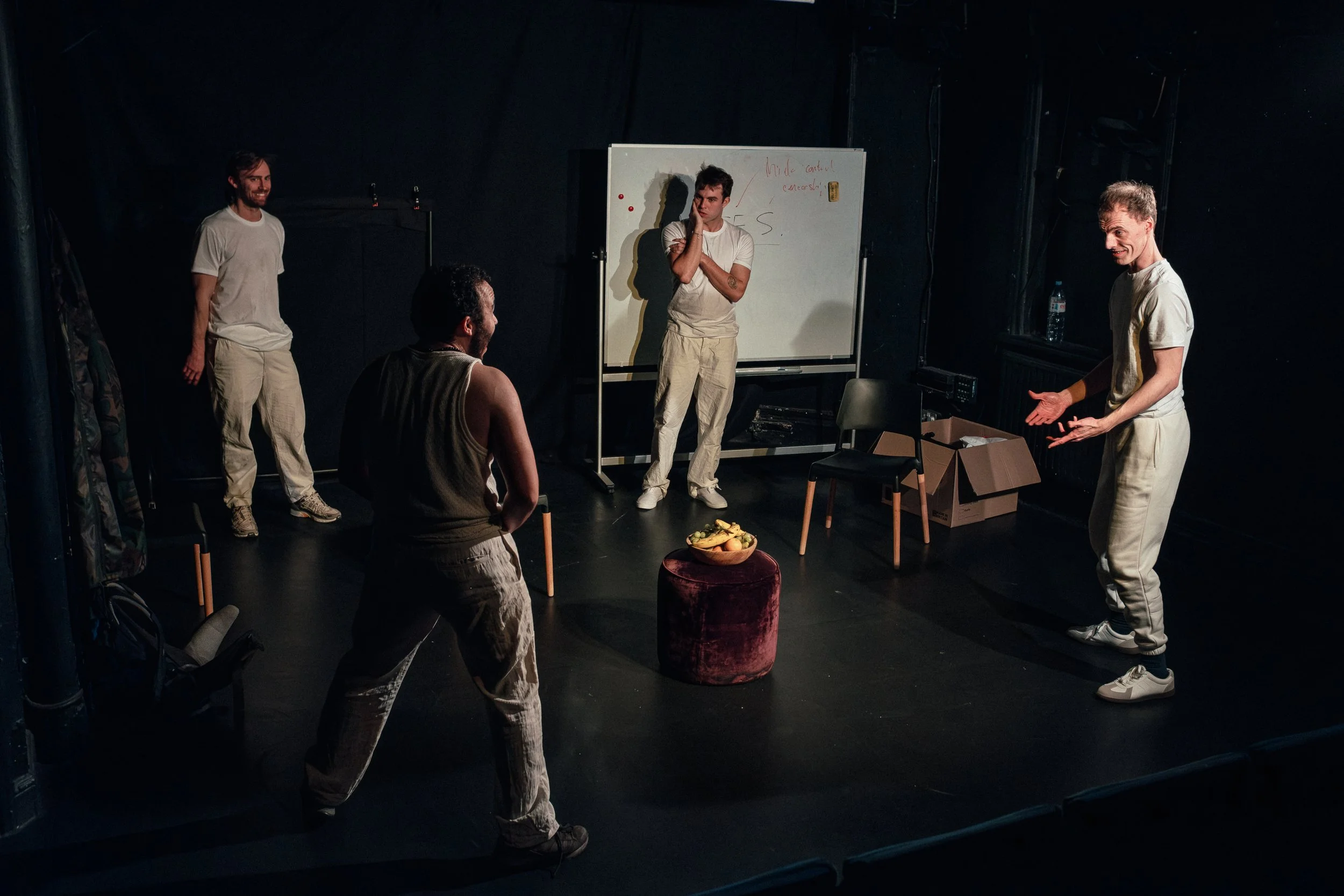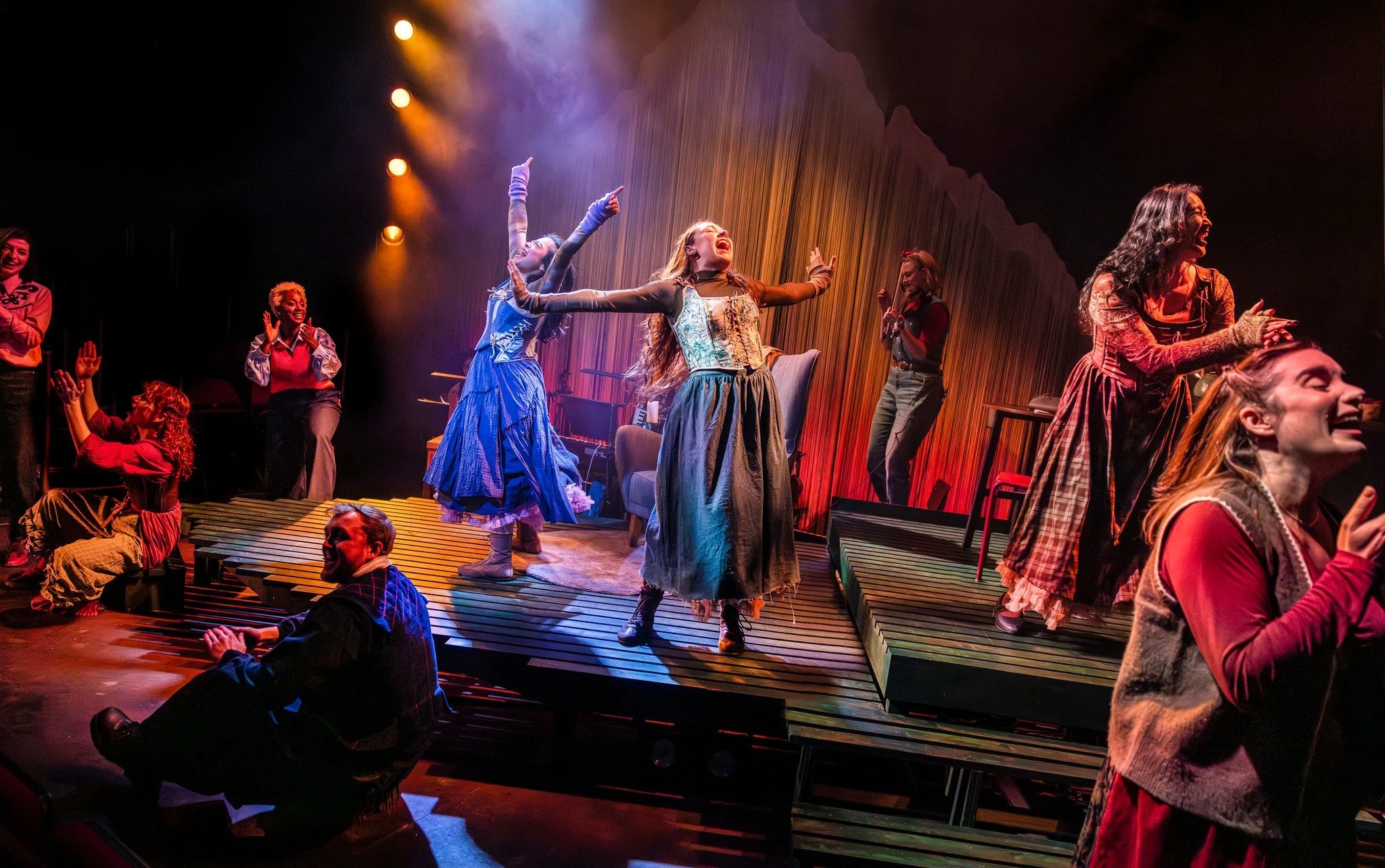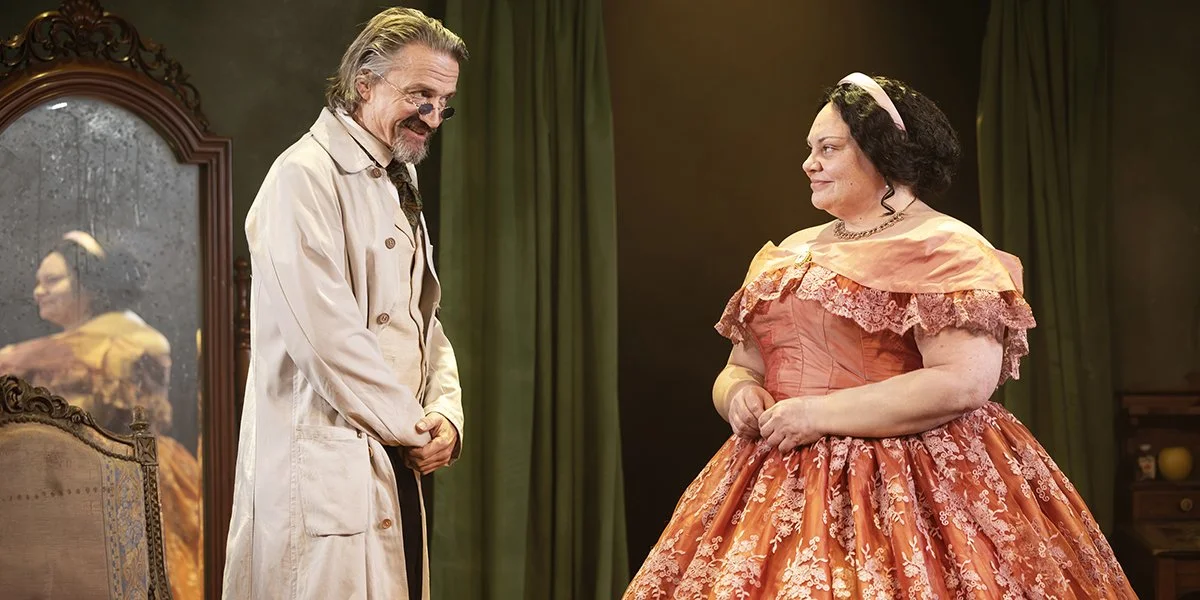The Women of Llanrumney, Stratford East Theatre Review
Photo by Chuko Cribb
Written by Jasmine for Theatre & Tonic
Disclaimer: Gifted tickets in exchange for an honest review
If you want a story that will sear itself into your mind and stick with you for weeks afterward, this is the play you should go and see next. I have no doubt that this is a play I will be thinking about countless times for a long while to come.
Azuka Oforka’s debut play never pulls its punches - there will be no space left for any doubt of how horrific, how merciless the world we are seeing is. The way she is able to give us such a complete and detailed feeling of a plantation/slavery-profiting 18th century Jamaica without ever taking us out of the Llanrumney plantation house is truly astounding. In every moment a character describes, you can see it so clearly in your mind, you’ll swear that it happened onstage. In many ways, seeing these horrors described in the gaudy and excessive living quarters of Llanrumney’s mistress makes it all the more shocking. The contrast between her life and the endless cruelty that supports it is never forgotten for a moment, and it feels an apt reminder for many of how willing people were to normalise the most depraved abuses of their fellow human beings when it was convenient for them.
Our window into the world of Llanrumney places us firmly in the perspective of Annie, played by Suzanne Packer, who has been enslaved at Llanrumney far longer than the newly arrived Cerys, played by Shvorne Marks. We tend to know what she knows, find out about the outside world only as she finds out about it, and so much of the journey in this play is hers. Packer’s performance is absolutely brilliant - she portrays the nuanced perspective and experiences of Annie with a depth and naturalism that brings you entirely into her world. Marks’s incredible presence onstage is the perfect match for this - every line she says has an impact you can immediately hear in people’s reactions as she provides a differing perspective to Annie’s tactical conformity. Watching them discuss their lives and beliefs whenever they are left alone, always trapped in this dining room doing housework, is so gripping that I remember being genuinely shocked when the interval came; the hour had passed in a flash.
Beyond what we find out about the world outside the house, a lot of the really unsettling moments of the play come from seeing how these two women change their behaviour when the mistress of the plantation enters the room. Patricia Logue’s direction ensures that these shifts, these sort of parallel worlds, are crystal clear - bringing to life the world of the 18th century plantation through the changing mannerisms of each character as their positions of power shift in relation to who is in the room.
Irony laces so many moments of this play - particularly in the endless self-pity of the lady of the house, Elisabeth, played brilliantly by Nia Roberts. She will come onstage weeping for herself whilst in the same breath justifying or enacting cruelty against the people she holds captive. Nothing will make her question the world as she finds it, and she is more than willing to profit from it. Even as she begins to discover the limits of her own freedoms, it never for a moment makes her question her willingness to take the freedom of others. A parade of men exists in the play to show those limitations, and you might be surprised to find out at the end of the play that they were all one actor - Matthew Granville - doing a brilliant job of multi-rolling as the hypocritical and self-serving white men of Jamaica.
Stella-Jane Odoemelam’s set becomes our window into Llanrumney’s world as people slip in and out of the dining room and very occasionally onto the veranda. It brilliantly displays both the suffocating position of Cerys and Annie, as well as the disconnect between the wealth in the house and the work that it came from. Everywhere is expensive furniture, heaps of food, as meal after meal is served. All that suffering, all the starvation and abuse on the plantation, is funding nothing but the excess of one wealthy woman who wants to eat six meals a day. Odoemelam’s set ensures we can never forget that fact.
The Women of Llanrumney is a moving and often shocking exploration not only of the little discussed role of Welsh aristocracy in slavery, but of what freedom means and how it can be achieved. It reminds us how willing people were and can be to ignore the humanity of others when it is profitable to them, and that the abolition of slavery was not achieved, as many sources would encourage you to believe, solely by white abolitionists, but through the consistent and unwavering resistance of enslaved people all over the world. Fundamentally this is a story about why you cannot work with a system that doesn’t recognise your humanity, you have to actively fight it.
At Stratford East until 12 April 2025
★ ★ ★ ★ ★














